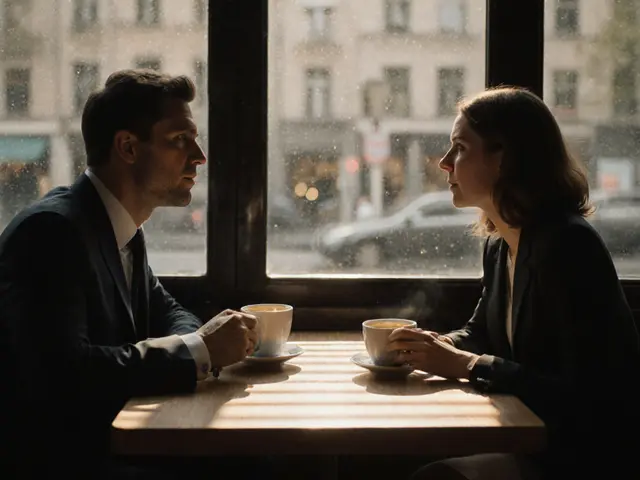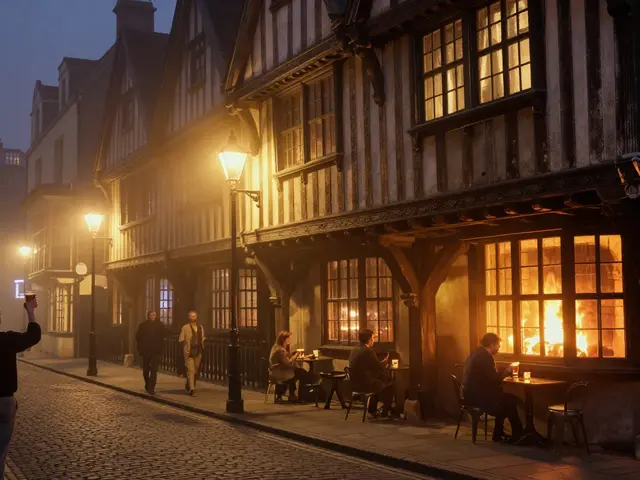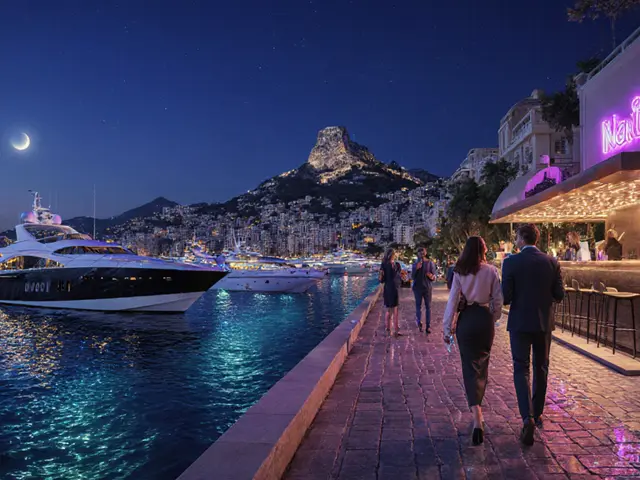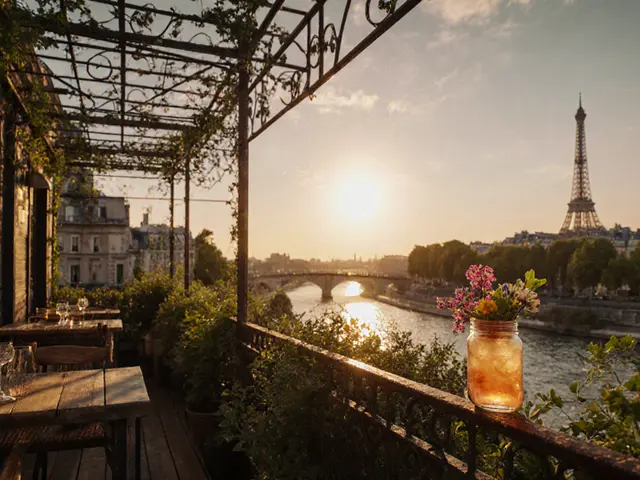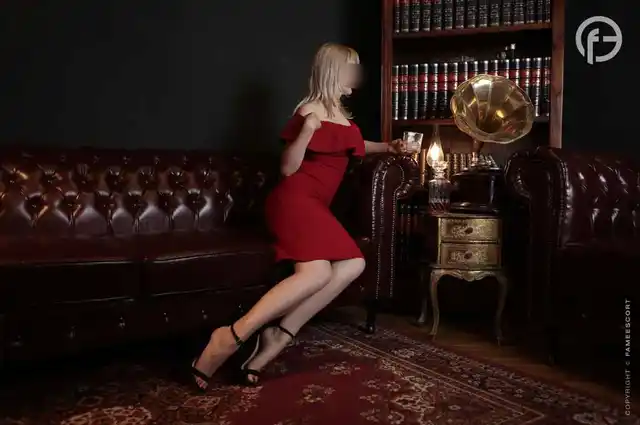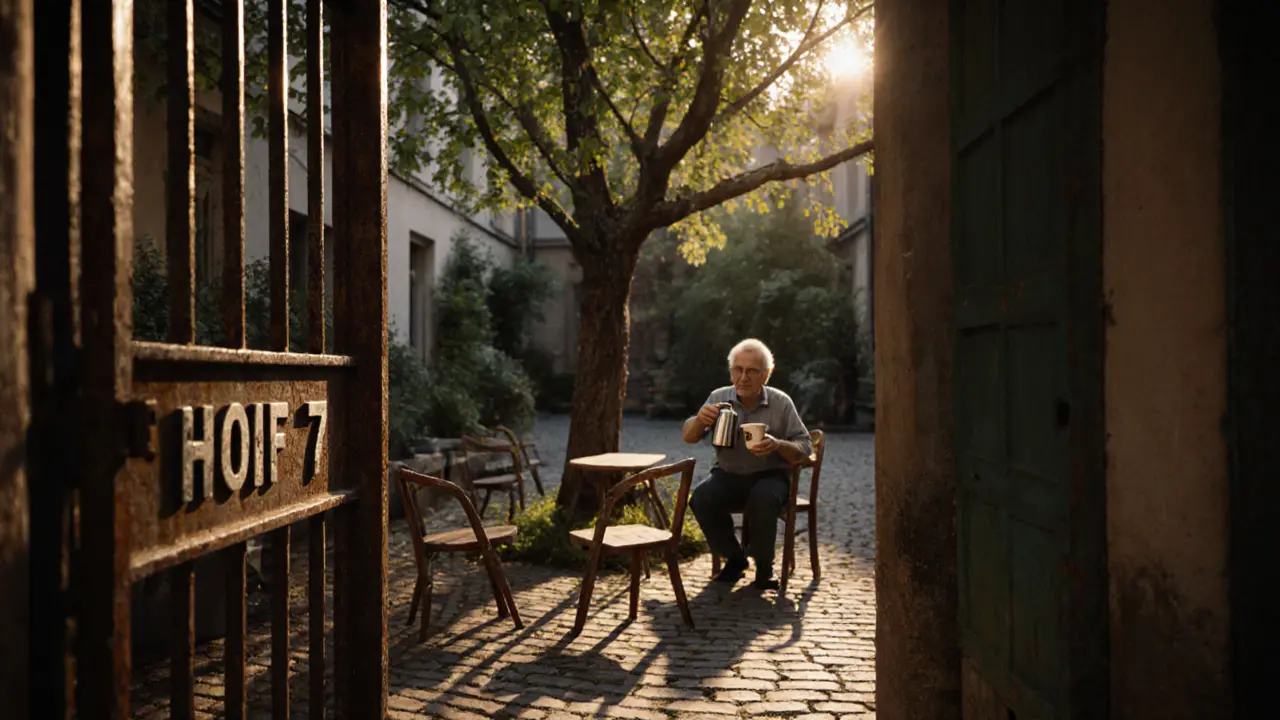
Most visitors to Berlin stick to the Brandenburg Gate, the Berlin Wall Memorial, and the bustling streets of Mitte. But if you’ve spent more than a day here, you know the real city doesn’t live in the postcards. It lives in the quiet courtyards, the basement bars with no signs, the street vendors who know your name by the third visit. If you’re an escort in Berlin - or just someone who wants to see the city like someone who lives here - this is where the magic happens.
The Courtyard That Doesn’t Show Up on Google Maps
Walk past the souvenir shops on Rosenthaler Straße and turn left at the third alley. There’s a rusted iron gate with no name, just a small wooden sign that says ‘Hof 7’. Push it open. Inside, you’ll find a tiny garden with mismatched chairs, a single tree that’s been there since the 1980s, and an old man who serves coffee from a thermos. He doesn’t speak English. You don’t need to. He nods when you sit down. The coffee is strong, bitter, and perfect. Locals come here to read, to talk, to escape. Tourists? They never find it. And that’s the point.
The Underground Jazz Spot Under a Laundromat
Head to Kreuzberg, near Görlitzer Park. Look for the green door with a washing machine painted on it. That’s Waschsalon. You walk in, and the smell of detergent mixes with cigarette smoke and old vinyl. Down a narrow staircase, you’ll find a room the size of a closet, packed with people leaning against walls, listening to a saxophonist who’s been playing here since 2008. No menu. No reservations. Just a jar on the counter for donations. The music starts at 10 PM sharp. It ends when the last person leaves. Some nights, it’s three people. Some nights, it’s thirty. It doesn’t matter. The music doesn’t change.
The Bridge Where the City Breathes
Most people cross the Oberbaum Bridge to get from Friedrichshain to Kreuzberg. They don’t stop. But if you wait until 7 PM on a weekday, climb the metal railing on the south side, and sit with your legs dangling over the Spree, you’ll see something no guidebook mentions. The city slows down. The lights from the buildings reflect on the water. A group of teenagers play guitar. An elderly couple walks their dog slowly. No one takes photos. No one talks loudly. It’s the only place in Berlin where you can feel time pause - and no one tries to sell you anything.
The Bookstore That Only Sells Books You’ve Never Heard Of
On the edge of Neukölln, tucked between a Thai takeaway and a repair shop for old radios, is Verlag der Unbekannten. It’s a tiny shop with shelves so full, you have to sidestep to get to the back. The owner, a woman in her 60s with ink-stained fingers, doesn’t organize books by author or genre. She arranges them by mood: ‘Books for Rainy Days,’ ‘Books That Make You Cry Quietly,’ ‘Books That Sound Like a Stranger Talking to You at 3 AM.’ She’ll hand you one without asking. You pay what you think it’s worth. Sometimes it’s €2. Sometimes it’s €20. She never argues.
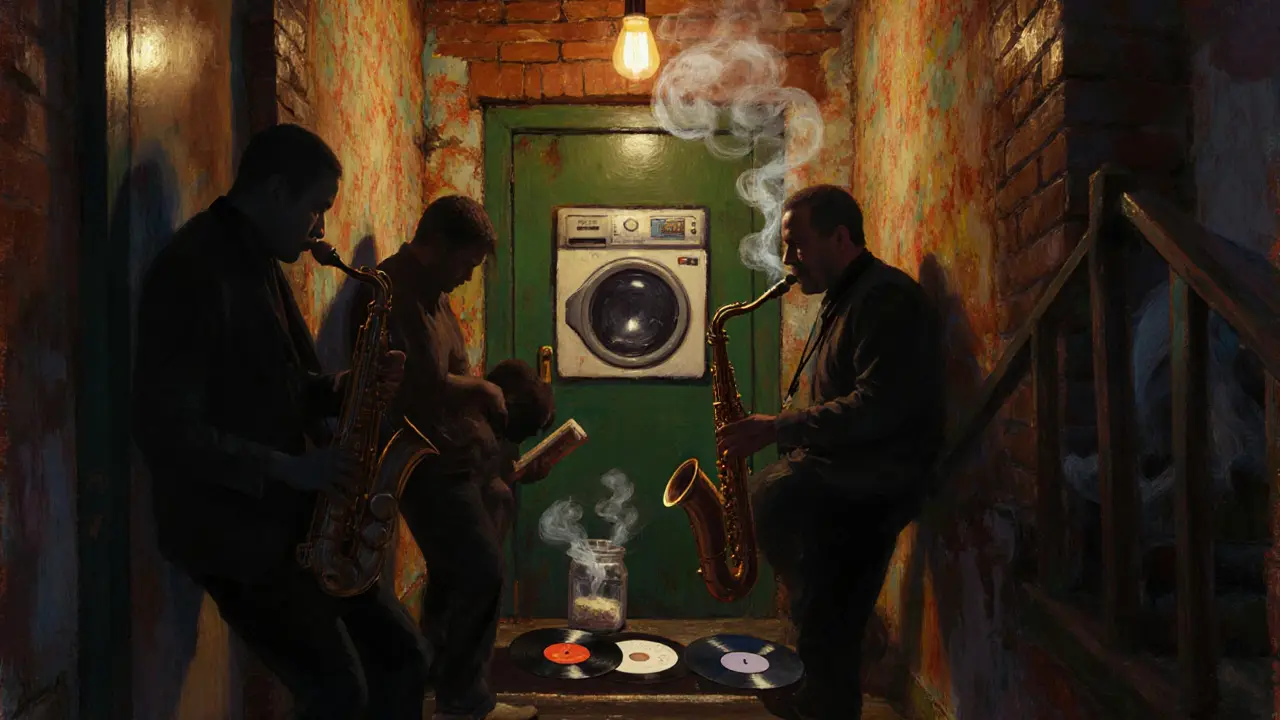
The Rooftop That’s Not a Rooftop
There’s a building on Warschauer Straße with a fire escape that leads to a flat roof nobody knows about. It’s not advertised. No bouncers. No cover charge. Just a few old mattresses, a propane heater, and a fridge someone left there years ago. On weekends, people bring wine, cigarettes, and records. No one introduces themselves. You don’t need to. You sit next to someone, listen to the same song, and nod. When the sun sets, the skyline of Berlin glows - the TV tower, the Fernsehturm, the new glass towers - but here, on this roof, you’re not looking at the city. You’re inside it.
The Night Market That Only Opens on Tuesdays
Every Tuesday night, a group of vendors set up stalls behind the abandoned railway station in Prenzlauer Berg. No permits. No permits needed. They sell homemade pickles, hand-knitted scarves, vintage cameras, and grilled sausages wrapped in bread from a 90-year-old recipe. The music comes from a Bluetooth speaker someone plugs into a car battery. You can’t find this on Eventbrite. You hear about it from someone who heard it from someone else. The best part? The same people are there every week. You start recognizing faces. They start remembering your order.
The Park Bench That Knows Your Secrets
There’s a bench in the Tiergarten, near the Berlin Victory Column, that’s been painted blue. It’s not the prettiest spot. The grass is patchy. The view is blocked by trees. But it’s the only place in the park where people sit alone - and stay. You’ll see people reading, crying, texting, staring into space. No one interrupts. No one asks questions. If you sit there long enough, someone will slide a note onto the bench next to you. It might say: ‘I’m sorry.’ Or ‘I’m proud of you.’ Or just ‘Me too.’ You leave your own note. You never know who finds it.
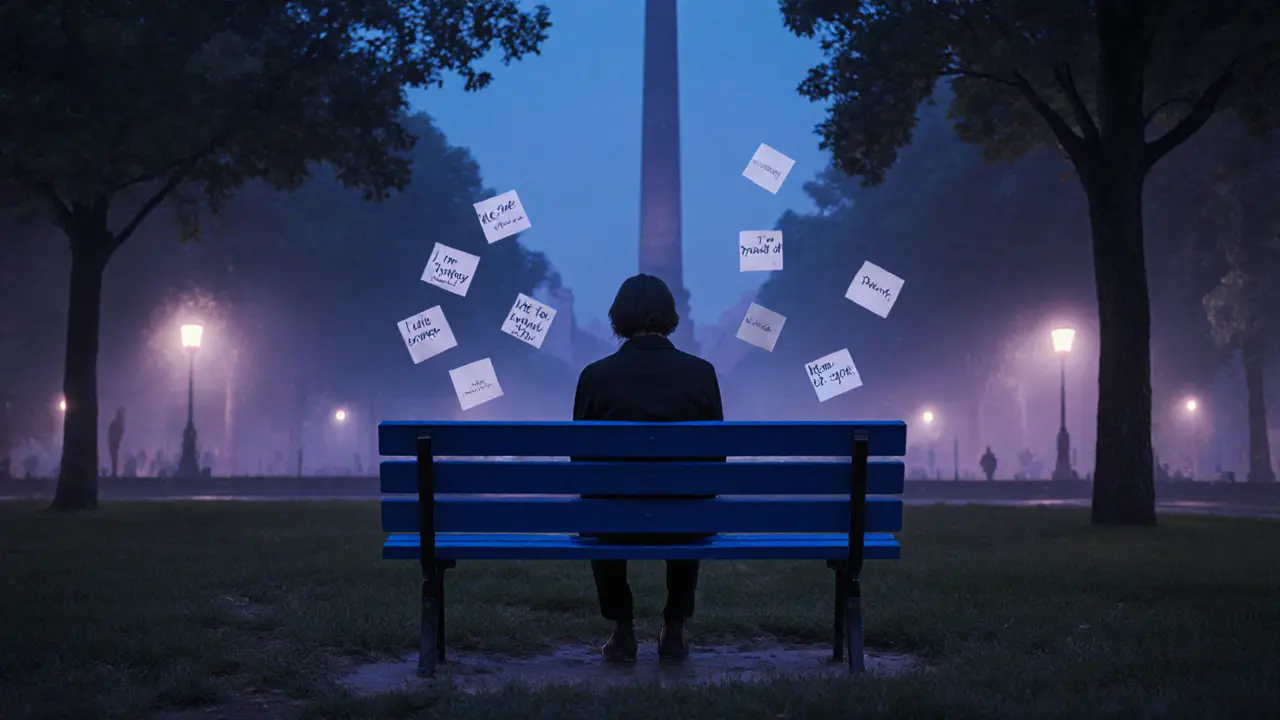
Why These Places Matter
These aren’t tourist spots. They’re not designed for you. They exist because people needed them - to breathe, to connect, to be quiet, to be strange. Berlin doesn’t market itself as a city of secrets. It just lets them grow. And if you’re an escort here, you’ve seen the city’s surface - the clubs, the hotels, the parties. But the real Berlin? It’s in the spaces between. The places where no one is watching. Where no one is selling. Where you’re not a client. You’re just someone who showed up.
How to Find More Like This
Stop using Google Maps for everything. Download OpenStreetMap and explore on foot. Walk without a destination. Talk to people who work in small shops. Ask: ‘Where do you go when you don’t want to be seen?’ Listen more than you speak. Follow the smell of coffee, not the signs. Skip the recommended bars. Go to the ones with no windows. The ones where the bartender doesn’t smile - but remembers your drink.
And if you’re ever unsure? Look for the place that feels like it shouldn’t exist. That’s usually the one that does.
Are these hidden spots safe for someone working in Berlin’s escort scene?
Yes - but not because they’re popular. They’re safe because they’re overlooked. The people who run these places don’t care who you are or what you do. They care if you’re respectful. These spots are quiet, low-key, and rarely crowded. Avoid going alone late at night in unfamiliar areas, but these hidden places are often safer than the flashy bars because they’re not on the radar of outsiders or police patrols.
Do I need to speak German to enjoy these places?
Not at all. Most of these spots thrive on silence, gestures, and shared moments. A smile, a nod, a simple ‘Danke’ goes a long way. Many of the regulars are international - artists, students, freelancers - and English is often spoken quietly in the background. But the real connection happens without words. You’ll understand more by listening than by speaking.
Can I bring a client to these places?
You could - but you shouldn’t. These spots aren’t for show. They’re for real, unfiltered moments. Bringing someone you’re paid to entertain turns them into a performance, not a memory. The beauty of these places is that they don’t ask for anything. They don’t want your money, your story, or your photo. They just want you to be there. If you bring someone who expects a highlight reel, you’ll miss the point entirely.
Why don’t these places get more attention online?
Because the people who love them don’t want them to. Every time a hidden spot goes viral, it changes. The owner closes. The regulars leave. The vibe dies. Berlin’s hidden gems survive because they’re passed down like secrets - not shared on Instagram. If you find one, keep it quiet. That’s the only way they stay alive.
What’s the best time to visit these places?
Late afternoon to early evening. That’s when the city shifts - from tourist mode to local mode. The streets quiet down. The lights come on. The real rhythm begins. If you’re an escort, this is when your workday ends and your time to breathe begins. Avoid weekends unless you’re looking for a crowd - these spots are meant for solitude, not spectacle.
What to Do Next
Start small. Pick one place - the courtyard, the jazz spot, the bench - and go there this week. Don’t plan. Don’t take a photo. Just sit. Let the city find you. You’ll realize something: Berlin doesn’t need you to see its landmarks. It just needs you to see it - truly - for the first time.

